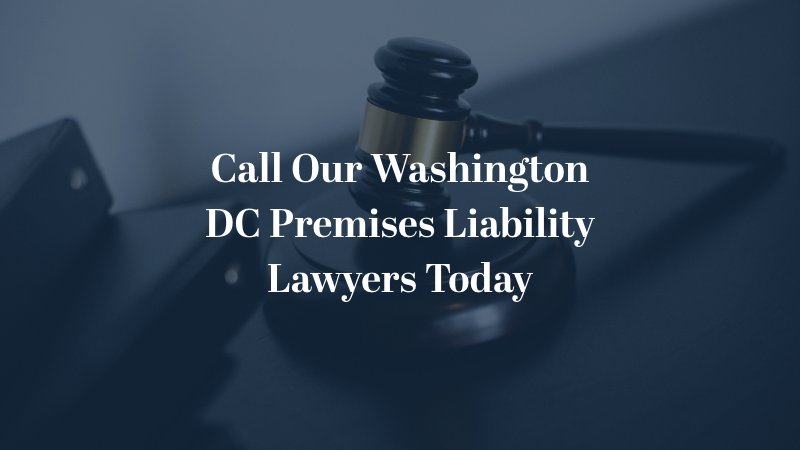Premises liability law makes property owners answer for injuries that happen on their land or in their buildings if they haven’t fixed unsafe conditions. When someone gets hurt because a hazard wasn’t marked, cleaned up, or repaired, the owner can be held responsible for the accident.
This rule applies in many places – stores, homes, sidewalks, and even parking lots. If an owner doesn’t warn about or fix known dangers, and it leads to someone getting hurt, a Washington DC premises liability case might be possible.
Common Types of Premises Liability Claims
Premises liability claims include many different types of situations. Below are some of the most common ones:
- Falls: Falls that happen because of wet floors, poor lighting, or other negligent situations make it easy for people to slip, trip, or lose their balance.
- Inadequate Security: Areas without working locks, security cameras, or security guards can put people at risk of assault or theft, especially in places where crime is known to be a problem.
- Dog Bites: Property owners and dog owners may be held responsible if their animal bites, attacks, or injures someone while on the premises.
- Falling Objects: People can be injured by falling objects, like unsecured tools or materials at a construction site. In this case, a property owner could be liable.
- Swimming Pool Accidents: Accidents can happen in pools that lack fencing, have no warning signs for deep water, or are not in good condition.
- Toxic Exposure: Properties with mold, asbestos, or unsafe chemicals can make visitors sick if hazards are not removed or properly contained.
No matter how the injury occurs, property owners are expected to act responsibly and keep their premises safe.

Who Can Be Held Liable in a Premises Liability Case?
When someone is hurt because of unsafe property conditions, more than one person could be liable. Here are some of the parties that may be responsible:
- Property Owners: Anyone who owns the property, like a homeowner or a business, is usually the first to be considered responsible for making the space safe. Local governments can also be held liable for public spaces like parks or sidewalks.
- Property Managers: The people or companies hired to oversee maintenance, repairs, or upkeep – such as landlords or property managers – might be liable if they ignore problems or do not keep the property safe.
- Tenants: If the person renting or leasing a space controls the area where the accident happened and creates a hazard, they could be responsible for injuries instead of or along with the property owner.
- Maintenance Workers or Contractors: Sometimes, outside workers or contractors cause hazards during repairs or cleaning. If their negligence causes an injury, they could be included in a premises liability claim.
Figuring out who is legally at fault is an important first step in making a premises liability claim, and your lawyer can help identify all responsible parties.
Why You Need a Personal Injury Lawyer for a Premises Liability Claim
Having a personal injury attorney on your side makes a big difference when dealing with a premises liability case. Here’s why legal help is so important:
Gathering Strong Evidence
You’ll need proof to show the property owner or other person/entity caused or ignored dangerous conditions. Attorneys know how to collect records, statements, photos, and expert opinions to build a solid case.
Dealing with Insurance Companies
Property owners and businesses will have insurance teams working against you. Lawyers know the tactics insurers use to reduce or deny claims and can push for a fair settlement.
Pursuing Maximum Compensation
Injury lawyers make sure all your losses, like medical bills, lost wages, pain and suffering, and long-term harm, are included in your claim. They know how to calculate damages and fight for what you truly deserve.
Working with a lawyer means you don’t have to argue with big insurance firms or navigate confusing laws alone. For help, contact us today to schedule a free consultation.